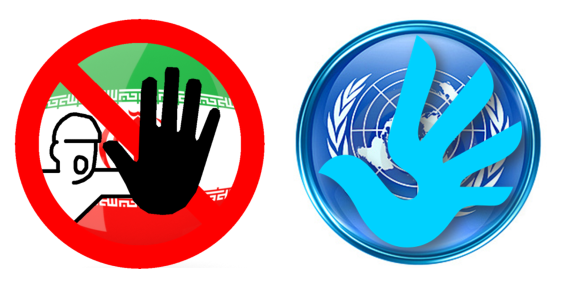
On April 3ed, the EU issued a press release which called to “exploit the current window of opportunity” in the nuclear talks with Iran to “be more active in addressing the human rights situation” in Iran beginning by opening a EU delegation in Tehran.
This resolution, which sounds legitimate in the eyes of Europeans, was met with wall-to-wall resentment in Tehran.
Here are a few examples of their responses which simply reinforce the suspicions that the regime in Tehran is not ready for change in human rights in Iran.
EU delegation is another “Spy Den”
Ayatollah Mohammad Ali Movahhedi Kermani didn’t mince words: “They (the EU) must learn a lesson from the closure of the US spy den because this people will not let another spy den be set up in Iran.” Kermani was referring, of course, to the US embassy which was taken over in 1979 leading to the hostage crisis in which 52 Americans were held hostage for 444 days. Not a very inviting thought for the EU delegates who are supposed to run the outpost in Tehran…
In fact, Kermani dismissed all suspicions against Iran on the subject of human rights: “They (EU) are showing maximum shamefulness and immodesty…(and) are expressing strange expectations and accusations and claim that human rights are not respected in Iran.” What is “shameful” is that Kermani actually believes that human rights are respected in Iran and that capital punishment for accusations as vague as “insulting Islam“, “insulting the Prophet” or “enmity against God” is legitimate. He obviously didn’t read the latest UN report which showed an alarming rise in hangings and in discrimination to women and minorities – that’s probably because internet is illegal in Iran meaning that Foreign Minister Zarif and possibly up to 45 million Iranians are breaking the law daily. So much for basic freedoms…
EU delegation is a “Cheap Act”
But it isn’t only mullahs, clerics and “hardliners” who are stonewalling the EU’s request for opening a delegation in Tehran.
Iranian parliament speaker Ali Larijani belittled the EU’s resolution by simply calling it a “cheap act” that was a result of the EU being “deceived” by “seditionists in the international arena” who support “disharmony in the society”. To paraphrase Kermani, Larijani’s response seems to show “maximum shamefulness and immodesty”.
But then again, perhaps Ali Larijani is simply falling in line with his brother Dr. Javad Larijani, the secretary of Human Rights Council in Iran. Javad who deems homosexuality a disease, expects the West to be “grateful” for rising execution rates, believes that “stoning (is) not in contrast with human rights” and views Iran as a “pioneer in human rights in the world” added more insight last month by stating that human rights is an “illusory ideology” that “is very unrealistic”. If the chief of human rights in Iran believes that human rights are basically an “illusory utopia”, how can anyone inside or outside of Iran expect any change?
Both Larijani brothers have repeatedly criticized any critics of human rights in Iran and have led the attack on Ahmed Shaheed, the UN Special Rapporteur by pointing out that his report is inaccurate because his information is not first hand while at the same time repeatedly denying hi entry into Iran. “Maximum shamefulness and immodesty” indeed…
And how about “moderate” politicians such as Zarif? Quite simply, Iran “will not allow any parliamentary delegation from Europe to travel to Iran on the conditions included in this European Parliament’s resolution” and the EU isn’t in a “moral position” to “express views on the situation of human rights in other countries”. As far as Zarif is concerned, the EU should accept what Iranian citizens understand – there can be no criticism against the regime in Tehran on human rights abuses or on any issue. Period.
EU Delegation a Fantasy or a Reality?
So while Tehran continues to block any criticism on the states of human rights in Iran, the P5+1 continue to try to reach a deal with Iran on the nuclear issue and many EU countries are rushing to Tehran to rekindle relations and business. In the meantime, Iranian human rights are abused daily and Iran’s aspirations for a militarized nuclear program is simply put on hold, ready to be re-activated at any time Tehran feels it profitable to do so.
The EU should understand this message loud and clear: Although the manner and style of Tehran has changed significantly under President Hassan Rouhani, any expectations of real change are “illusory and very unrealistic”.


